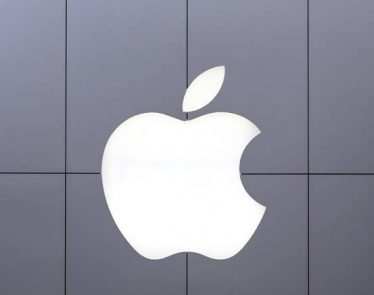
Apple Inc.’s (NASDAQ:$AAPL) annual developer conference has been in full swing this week (starting June 4, 2017 and ending June 9, 2017), and as always, the tech giant unveiled a series of new hardware as well as upgrades to existing devices. Besides exciting news such as the iPad Pro update and new smart speaker HomePod, Apple made another important announcement that could transform computing platforms: the launch of ARKit, an augmented reality (AR) platform, for developer-use.
The ARKit allows developers to incorporate AR tools into their applications and services, blending digital objects and information with the surrounding environment. As such, the kit will be able to fuse camera sensor data with motion data. Alasdair Coull, creative director at WingNut AR, demonstrated the kit’s functionality by introducing virtual objects within the real-world surroundings of the convention center at the developer conference.
Source: YouTube/ Panagiotis K. Tsioufis
The ARKit can be a huge profit to Apple and mobile developers alike. Digi-Capital, a VR/AR (Virtual Reality/Augmented Reality) Mergers and Acquisitions (M&A) advisor, has projected the mobile AR market to be worth $108 billion by 2021. Just last year, AR technology have already hit an estimated $1.2 billion in revenues — largely due to the overwhelming success of Nintendo’s Pokemon Go that was available on Apple devices. Digi-Capital also provided an analysis of the technology, listing out five challenges for AR adoption which included a “hero” device that is widely-used and known, an app ecosystem, and telco subsidization.
With the popularity of its devices and the widespread iOS ecosystem, Apple is a company that is looking pretty compatible in helping AR technology achieve success. Apple has already developed a mobile chip, Apple Neural Engine, that is designed for more efficient artificial intelligence processing. The company has also made several purchases of AR-focused companies such as MetaiO and FlybyMedia to help boost its credibility in the growing AR industry. Additionally, Apple is reportedly developing AR glasses with established eyewear and/or optical companies, like Carl Zeiss.
Apple’s seemingly effortless integration into the world of AR is not without some serious competition from other tech-based companies. Facebook, Inc. (NASDAQ:$FB) has also announced plans at its developers conference this year to use smartphone cameras for AR. Alphabet Inc. (NASDAQ:$GOOG), subsidiary company of Google, began early with AR technology with its already-developed AR platform that is also spatially aware, Project Tango. The platform, however, is not widely distributed as it is only available through one phone in the market: Lenovo Group Limited’s ($LNVGY) Phab 2 Pro. Microsoft Corporation (NASDAQ:$MSFT) have also developed a device called Hololens that provides cutting-edge AR experiences — though it is quite expensive and an exclusive platform.
Google’s weak distribution of Project Tango and Microsoft’s difficult public-access to its Hololens could mean that Apple could still come out on top with AR technologies, given its wide-range iOS ecosystem and the popularity of its devices. As such, investors, developers, and competitors alike should keep an eye out for Apple and all the possibilities that can come with the new ARKit.
Featured Image: twitter












